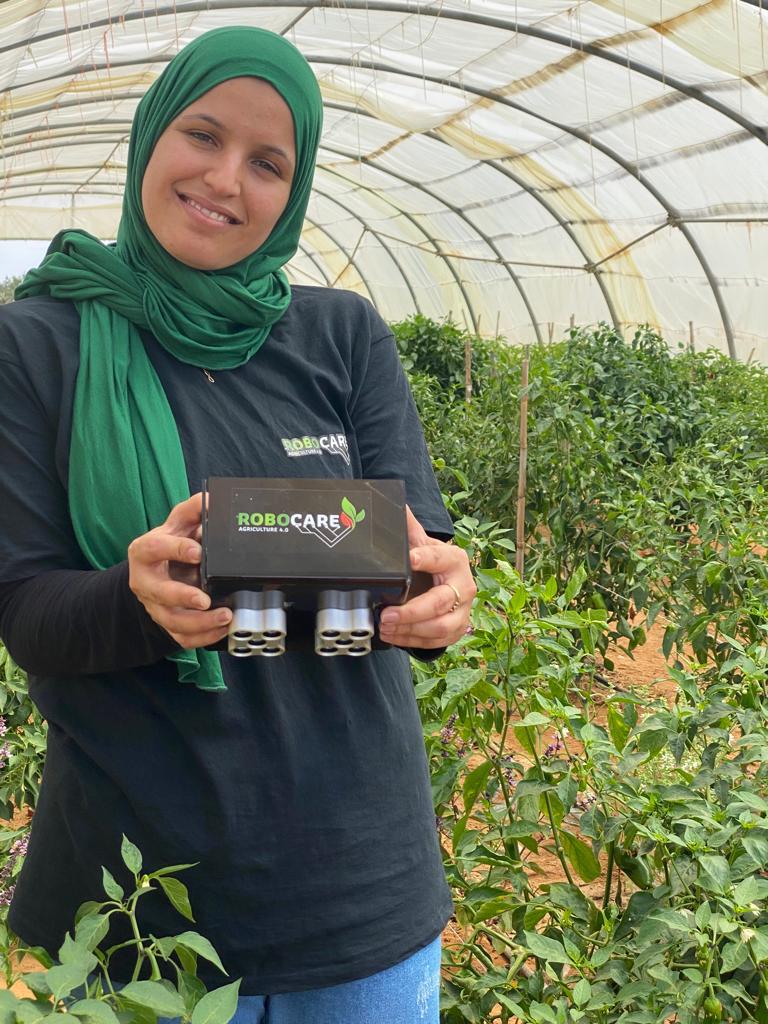Startup Spotlight: Tunisia-Based RoboCare's Tech-Driven Agronomic Solutions Help Farmers Navigate Climate-Change-Related Issues By integrating satellite, drone, and IoT sensors onto its platform, RoboCare provides optimal technical solutions for individual farming needs.
By Aalia Mehreen Ahmed •
Opinions expressed by Entrepreneur contributors are their own.
You're reading Entrepreneur Middle East, an international franchise of Entrepreneur Media.

The following is a profile on one of the six startups that have been chosen to be in the second edition of PepsiCo's Greenhouse Accelerator Program: MENA Sustainability Edition- an annual program to support regional entrepreneurs or startups that are tackling a variety of climate-related challenges.
As the global discourse on how artificial intelligence (AI) can be used for good continues, one Tunisia-based agritech startup has decided to use the technology to attain sustainable farming practices. Meet RoboCare, an entity that specializes in using spectral imaging technology (an imaging technique that analyzes a wide spectrum of light across the electromagnetic spectrum) and AI within agriculture. Using these technologies, the startup offers agronomic (i.e. relating to the science of soil management and crop production) solutions that can monitor crops, prevent stress, control plant requirements, improve land efficiency, and optimize pesticide needs.
"At RoboCare, our love for technology and agriculture drives us to innovate sustainable solutions to tackle climate change challenges," says Dr. Imen Hbiri, co-founder and CTO of RoboCare. "By democratizing access to our spectral technology and AI expertise, we empower farmers to make informed decisions and promote sustainable practices. Our cutting-edge sensors and AI algorithms provide real-time insights into crop health, soil conditions, and environmental factors, leading to improved yields and resource management. We thus hope to create a greener future for all farmers and communities, and overcome climate change's obstacles to drive towards a brighter tomorrow."
Source: RoboCare
Launched in 2020 in the Tunisian town of Sfax, RoboCare offers precision farming services that use data from satellites, drones, and internet of things (IoT). Using a software-as-a-service (SaaS) business model, the startup offers its tech-enabled farming tools at a pricing of just US$1 per month per hectare of land, which enables easy access to farmers. "We prioritize agronomic expertise to deliver tailored recommendations to farmers," Dr. Hbiri explains. "By seamlessly integrating satellite, drone, and IoT sensors onto our platform, we provide optimal technical solutions for individual farming needs. Our cutting-edge technology utilizes hyperspectral imaging to capture invisible plant signals beyond human eyesight. By generating plant signatures that differentiate between healthy and stressed plants, we empower farmers to take proactive measures against infections before they escalate. This approach maximizes resource efficiency, targeting timely crop treatments and optimizing crop inputs, resulting in 30% reduction in costs, 20% increase in yields, and minimization of losses."
 Source: RoboCare
Source: RoboCare
RoboCare currently offers two key solutions: Crop-Care, and Toma-Care. "Through our Crop-Care solution, we offer a comprehensive turnkey out-of-thebox package that includes an unmanned aerial vehicle, spectral camera, and thermal camera," Dr. Hbiri explains. "On the other hand, Toma-Care is a digital monitoring system for early-stage disease detection in greenhouse crop production based on proximal sensing [technology that captures high-resolution data from a close range, and then provides insights into crop health, soil conditions, and other ecosystem dynamics] and AI technology."
Now, for a startup that has so far adopted a combination of bootstrapping and financial grants to fund itself, Dr. Hbiri says being chosen into PepsiCo's Greenhouse Accelerator Program is a "significant milestone" for RoboCare. "The six-month program will provide us with invaluable access to mentorship, a pivotal asset for our future growth trajectory," Dr. Hbiri says. "With the guidance of PepsiCo and their partners, our objective is to enhance the scalability of our comprehensive dashboard, which we hope they will consider integrating into their own business operations. The program will also be a launchpad for our pursuit of international expansion. With our established success in Tunisia forming the foundation, our goal is now to expand across the MENA region. The program's supportive framework and initial grant will definitely play an instrumental role in pushing us toward our next milestone."
But international scaling isn't all there is to Dr. Hbiri's plans for her startup. If anything, much of the founder's strategies are deeply rooted in creating a lasting regional impact. "Over the next six months, our ambitions are laser-focused on achieving significant milestones that align with our sustainable agriculture vision," Dr. Hbiri says. "For starters, we are determined to close our first round of funding. This investment will provide us with the necessary resources to accelerate our growth, strengthen our research and development capabilities, and expand our reach to even more farmers globally. Our objective is also to triple our local customer base. We believe that by focusing on the local market, we can make a significant and immediate impact on agricultural practices, while also building strong foundations for broader expansion."












